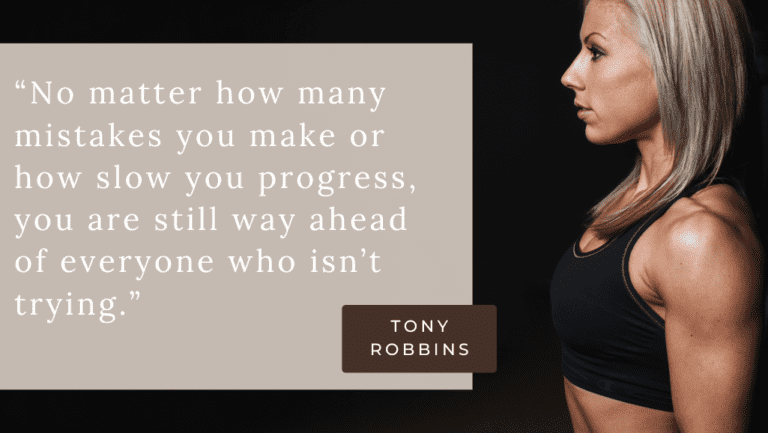If you observe your everyday thinking, you will soon discover that this stream mostly consists of repetitive thoughts. By taking even closer inventory you can recognize these patterns as our core beliefs.
If they are like mine, I dare to suggest that most of them are negatively inclined. And although they do trouble us, surprisingly, we don’t do much about it. We simply keep maintaining these beliefs throughout our entire lives without questioning them.
But we can’t carry on like this any longer, can we?
If we want to improve our self-esteem we must transform this inner voice tone to a supportive one and turn our inner critic into an inner friend. I invite you to explore the 7 most popular negative core beliefs and see how we can challenge them. Let’s get to it.

Why self depreciate?
Most of our negative self-statements did not arise out of nowhere but rather became reprocessed memories of hurtful and unfair comments from our “educators” – parents, teachers, relatives, and peers.
But it is not always the childhood to blame, for we continue to get influenced throughout the lifespan. Some of those beliefs are traces of our painful adult past as well – conflicts in relationships, breakups with friends, or arguments with bosses and colleagues.
In any case, self-deprecation destroys healthy self-esteem and does not help in fixing the situation.
Reframing our thoughts, challenging negative beliefs, and substituting them with more friendly and benevolent statements have proved to have a positive impact on our self-perception.
By changing our inner dialogue from criticism to support, we create a kinder and more supportive relationship with ourselves. This can lead to increased self-confidence, improved mental health, and better relationships with others.
RELATED READING
Why Do I Feel So Bad About Myself? Understanding the Reasons
1. Notice the Good
Faulty belief: “Luck is never on my side.”
More accurate statement: “Look at how many good things have happened to me”
We usually tell ourselves “I never get lucky” or “Luck is never on my side” after an unexpected failure, a major setback, or a personal crisis; especially if we put in a lot of effort.
Indeed, in those dramatic moods, when we are under stress and trying to minimize the damage, any stroke of bad luck feels especially painful. It is like the “icing on the cake” – what else can go wrong?
Yes, luck and misfortune do exist objectively, BUT seeing bad news or a dramatic setback as a TREND of failure is mostly a by-product of feeling exhausted and down.
Generalized statements, like the ones above, cannot simply be true by their very nature, simply because you are reading this text. This means you have at least a roof over your head, a screen, electricity, and the ability to load this page.
This is not just an abstract argument of “children are starving in Africa,” but a simple acknowledgment of the privileges we have that many others lack.
So many times any next unfavorable situation alters our perception in a way that we, by aligning a chain of negative events, stop seeing positive ones. How many people have helped us, how many things we have experienced, what we have managed to learn, with whom we have made friends, what we have achieved, and how much we have earned through our hard work.
I will not encourage you to impose unnatural optimism on yourself in moments of anger, sorrow, and despair. However, I’ll ask you not to construct a chain of life events as a series of eternal failures and inevitable consequences.
Instead, once you have stepped out of the state of affect, think about how your own efforts, other people’s help, and fortunate circumstances have influenced your life. Objectively and honestly.
2. Don't be afraid of mistakes
Faulty belief: “I messed up again”
More accurate statement: “Look at all I’ve learned and accomplished”
Many people are raised with the mindset of “I did everything wrong,” which instills fear of making mistakes and triggers panic in the face of failures. This is often associated with demanding parents or other authoritative figures who raise their voices when you don’t react quickly enough, move clumsily, learn something for the first time, or simply fail to achieve exceptional results.
Some individuals who grow up with such an upbringing become pathological seekers of approval ( a.k.a people-pleasers), while others get gravely disappointed from every misstep (a.k.a perfectionists) – as if everyone is born with THE KNOWLEDGE and in-built instructions on how to act correctly.
Indeed we constantly get caught up in the idea that success is the only acceptable outcome. But what if we looked at it from a different angle?
What if we viewed our goals and efforts toward them as opportunities to build new neuropathways and gain knowledge and skills, regardless of the end result?
This shift in perspective can be both introspective and contrarian, yet it’s the one that may ultimately lead to personal growth and integrity.
When you contemplate the fact that your efforts may not necessarily yield results, but solving problems is truly interesting and important primarily for the sake of personal integrity and knowledge, even the worst mistakes will not be perceived as fatal.
3. Approach problems objectively
Faulty belief: “I am not trying hard enough”
More accurate statement: “Let’s see what can be done better”
This is another radical belief that supposedly motivates people to do better, but in reality, only fosters unhealthy self-esteem and breeds the tendency to “people-pleasing”.
The main problem with the idea of “I am not trying hard enough” is its vagueness and complete impracticality. Not enough for whom? Who is this mysterious and merciless judge?
By continually replaying this negative belief, we only engage in self-blame and fail to see the bigger framework: What result did we actually want to achieve? What objectively went wrong? Who can provide guidance on how to act? And what specific steps can be taken now?
Wouldn’t you agree that every unpleasant situation – from professional shortcomings to personal conflicts can be if not eradicated totally, but definitely minimized? You can look at the work project from a different angle, consult with friends, find people with relevant experience, call a friend, apologize, or redo something based on constructive feedback.
Nothing is the end of the world, it is simply inconvenient.
4. Embrace the Opportunity of Failure
Faulty belief: “I am to blame myself for all the problems”
More accurate statement: “Things happen because I cannot control them”
As I’ve mentioned above, a troubled mind tends to exaggerate the role of random and insignificant events, incorporating minor incidents into a chain of misfortunes. For instance, chronic professional failures, painful breakups, conflicts with loved ones, and consistent income problems.
I am not denying the concepts of guilt and responsibility: both exist in our lives – sometimes, we intentionally deceive or mislead others and purposely avoid responsibility for our actions.
However, there is also a range of circumstances that we cannot influence. There is no way we are to protect ourselves from all adversities. Sometimes, we lack the strength to prepare for difficult times, and then it becomes too late. And as unoptimistically as it sounds, certain unfortunate events and tragedies do not fit into the theory of fairness.
That’s why it is important to distinguish the inevitable from what can be easily avoided and acknowledge that life is full of unpredictable twists and turns. It’s not about being pessimistic, but rather accepting that things don’t always go as planned.
When you have a feeling that you are in control, you are deluding yourself. And when you let it go, you are finally acknowledging that no one is prepared for personal and global catastrophes and there is simply no such thing as being resilient to stress in everything.
5. Don't be afraid to ask for help
Faulty belief: “I must be able to do it all by myself”
More accurate statement: “There is nothing wrong in asking for help and showing weakness”
Dealing with all problems on our own is a mindset that is imposed on us too early. If caregivers distance themselves and prevent us from asking for their help, we develop the illusion that we should inherently know and understand everything, so there is no need to count on external assistance.
It is from there that we lack the skill of clarifying unclear points when they arise, and instead, we just wait to face the consequences (not a good strategy). For example, we avoid expressing honest expectations in relationships or getting transparency on duties when starting a new job.
Often, we lack the skills to quickly solve a problem that others handle effortlessly. But there is nothing unnatural or shameful about saying, “I don’t know how to do this,” or “Help me understand” when there are uncertainties and ambiguities.
Anyways, why did we ever decide that asking for help is shameful?..
One important thing about this situation is allies. You don’t wish your problem to be met with indifferent emptiness. If it’s a partnership, then problems are solved together. If it’s a work project, agree on mutual assistance. If it’s a friendly situation, don’t hesitate to ask for advice or help when you don’t understand what to do.
Everyone has weaknesses: you can keep a straight face and act blindly on your own, or you can arrange with others for a beneficial exchange, where you will mutually support each other.
6. Take care of yourself
Faulty belief: “I am not loved because I do not love myself”
More accurate statement: “It’s time to take care of myself”
There is nothing dangerous in the statement that self-love is a necessary condition for peaceful and confident relationships with the world, AS LONG AS it does not burden a person with responsibility for not being able to love themselves thus far.
The process of reconciling with one’s own flaws can take a lifetime, and the worst thing you can do is blame YOURSELF for receiving negative attitudes from others.
Maybe it is difficult to love and support yourself, but it doesn’t mean you can condone or justify others’ dishonest actions, violence or neglect towards yourself.
Changing the wording from “I am to blame for not being loved” to “It’s time to take care of myself” completely shifts the meaning of the internal message. Thinking about oneself, rather than pleasing others, choosing personal comfort and favorite activities, and creating a safe space are important steps towards inner peace that have little to do with the actions of others towards us.
Taking care of oneself encompasses many aspects, from physical well-being and mood to self-realization and financial stability. It is like building a fortress around oneself primarily to interact with the world more confidently and joyfully, rather than beg for its love.
7. Do not compare yourself to others
Mistaken mindset: “I am worse than others”
Correct mindset: “There is no better or worse, everyone is unique”
Upbringing and social standards lead people to inevitably rank each other: based on origin, income, appearance, status, and achievements – all of which are important for self-esteem. However, this creates a constant feeling of racing against others for imaginary rewards.
Certainly, negative self-esteem and self-loathing for many become effective whips and negative motivation, driving them towards new victories and accomplishments.
But then at some point that stops working: comparing oneself to others leads to the perception that everyone around is better and more talented in some way.
Your inner friend instead of your inner critic would choose to see it differently: there is no “worse” or “better,” but we can indeed be inferior to some in certain cognitive abilities and the number of privileges while surpassing others in different aspects.
Perhaps you were not born with a perfect singing voice, but you still have a voice.
Or you are healthy while others have suffered from chronic illnesses since childhood.
Long-term planning may not come naturally to you, but you are not afraid of spontaneous decisions.
You learn languages easily but struggle with numbers.
You get tired quickly, but you also recover fast.
You may not be the life of the party, but you have rare perseverance.
No random combination of traits makes us good or bad, superior or inferior. It is our unique blend of strengths and weaknesses that makes us who we are. And it is up to us to embrace and celebrate our individuality instead of trying to fit into society’s narrow definitions of success.






